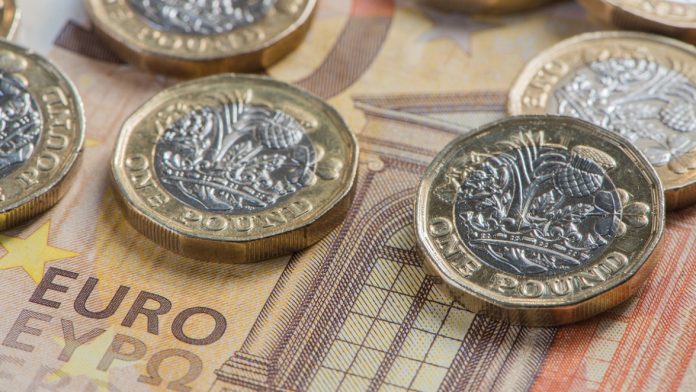The pound advanced versus the euro on Monday. The pair hit a peak of €1.1306 before closing the session at €1.1293. However, currencies were broadly out of favour as investors moved out of “riskier” currencies. The pound is edging lower versus the euro in early trade on Tuesday.
| What do these figures mean? |
| When measuring the value of a pair of currencies, one set equals 1 unit and the other shows the current equivalent. As the market moves, the amount will vary from minute to minute.
For example, it could be written: 1 GBP = 1.13990 EUR Here, £1 is equivalent to approximately €1.14. This specifically measures the pound’s worth against the euro. If the euro amount increases in this pairing, it’s positive for the pound . Or, if you were looking at it the other way around: 1 EUR = 0.87271 GBP In this example, €1 is equivalent to approximately £0.87. This measures the euro’s worth versus the British pound. If the sterling number gets larger, it’s good news for the euro. |
UK Prime Minister Boris Johnson met with President of the European Commission Jean-Claude Juncker. Headlines indicated that not much progress was made in UK — EU negotiations.
The EU are still insistent that they haven’t received a detailed proposal to avoid a hard border in Ireland from the UK government. The EU criticised the UK’s level of dept and detail. Dominic Raab, UK Foreign Secretary sent plenty of criticism back to the EU. He also reiterated that the UK will leave the EU on 31st August. The lack of progress unnerved pound investors, raising the prospect of a no deal Brexit.
| Why is a “soft” Brexit better for sterling than a “hard” Brexit? |
| A soft Brexit implies anything less than UK’s complete withdrawal from the EU. For example, it could mean the UK retains some form of membership to the European Union single market in exchange for some free movement of people, i.e. immigration. This is considered more positive than a “hard” Brexit, which is a full severance from the EU. The reason “soft” is considered more pound-friendly is because the economic impact would be lower. If there is less negative impact on the economy, foreign investors will continue to invest in the UK. As investment requires local currency, this increased demand for the pound then boosts its value. |
Today there is no economic data due to be released from the UK. Instead investors will remain fixed on Brexit developments as Prime Minister Boris Johnson’s decision to suspend Parliament will enter the Supreme Court for a three-day hearing.
Will German ZEW Sentiment Data Drag On Euro?
The euro was out of demand in the previous session as investors digested new information on the attacks on Saudi Arabia’s oil infrastructure. President Trump said that the US are “locked and loaded” and with emerging information pointing to Iran being responsible, geopolitical risk has picked up substantially over the past few days. As geopolitical risk increases, investors often look to buy into the US dollar, for its safe haven properties. The euro trades inversely to the dollar. Therefore, as the dollar increased in value the euro declines.
The euro could remain under pressure today as investors continuing digesting developments surrounding the Saudi attacks and as investors look towards the ZEW economic sentiment figures. Economic sentiment within the eurozone, and particularly in Germany has deteriorated significantly over the past few months. It hit a low of -44.1 in August reflecting significant pessimism. Analysts are predicting the confidence ticked slightly higher in September to -38 and a recession in Germany the eurozone’s largest economy.
| Why does poor economic data drag on a country’s currency? |
| Slowing economic indicators point to a slowing economy. Weak economies have weaker currencies because institutions look to reduce investments in countries where growth prospects are low and then transfer money to countries with higher growth prospects. These institutions sell out of their investment and the local currency, thus increasing supply of the currency and pushing down the money’s worth. So, when a country or region has poor economic news, the value of the currency tends to fall. |





